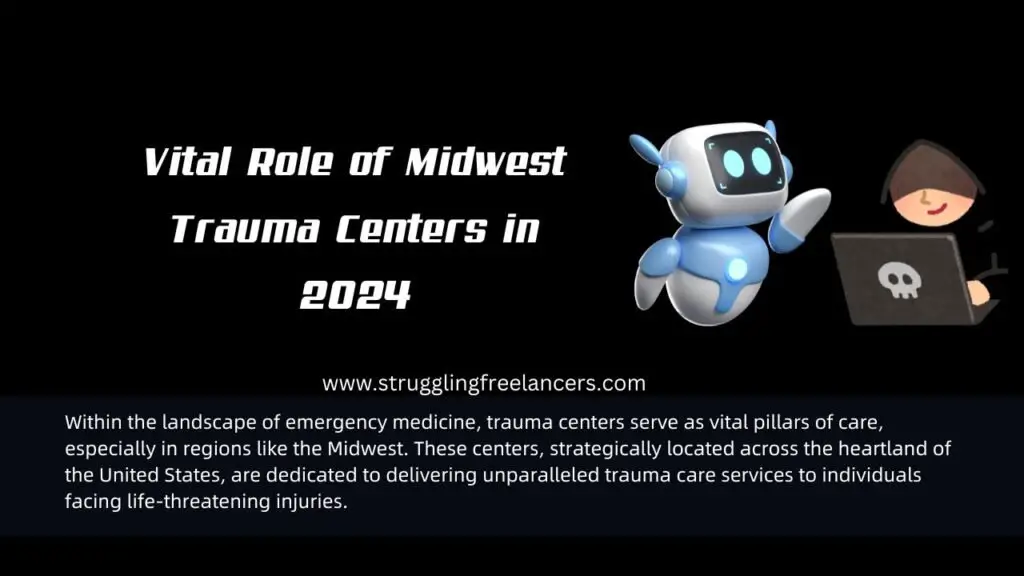Introduction:
Within the landscape of emergency medicine, trauma centers serve as vital pillars of care, especially in regions like the Midwest. These centers, strategically located across the heartland of the United States, are dedicated to delivering unparalleled trauma care services to individuals facing life-threatening injuries. This article delves into the pivotal role and far-reaching impact of Midwest trauma centers in elevating trauma care standards and improving patient outcomes across the region.
The Essential Functions of Midwest Trauma Centers:
Midwest trauma centers fulfill a spectrum of crucial functions aimed at providing comprehensive trauma care services:
1. Rapid and Specialized Response: At the core of Midwest trauma centers is their ability to deliver swift and specialized responses to trauma cases. Equipped with highly trained trauma teams comprising trauma surgeons, emergency physicians, nurses, and ancillary staff, these centers ensure that patients receive immediate assessment, resuscitation, and stabilization upon arrival, mitigating the risk of further complications and optimizing outcomes.
2. Coordinated Multidisciplinary Care: Midwest trauma centers employ a multidisciplinary approach to trauma care, bringing together diverse specialties and expertise to address the complex needs of trauma patients. Trauma surgeons, neurosurgeons, orthopedic surgeons, critical care specialists, and other healthcare professionals collaborate closely to provide seamless and coordinated care throughout the continuum of treatment.
3. Advanced Diagnostic and Treatment Capabilities: One of the hallmarks of Midwest trauma centers is their access to cutting-edge diagnostic and treatment technologies. From advanced imaging modalities such as CT scanners and MRI machines to state-of-the-art surgical suites equipped for emergent interventions, these centers leverage the latest innovations to deliver precise and effective care to trauma patients.
4. Comprehensive Rehabilitation and Follow-Up: Beyond the acute phase of treatment, Midwest trauma centers offer comprehensive rehabilitation services aimed at promoting recovery and maximizing functional outcomes. This includes physical therapy, occupational therapy, speech therapy, and psychological support services to address the physical, cognitive, and emotional aspects of recovery. Additionally, these centers provide long-term follow-up care to monitor patients’ progress and address any ongoing needs or complications, ensuring continuity of care and support.
Impact of Midwest Trauma Centers:
The presence of Midwest trauma centers has far-reaching implications for patient outcomes, healthcare systems, and communities within the region:
1. Enhanced Patient Survival and Recovery: Research has consistently demonstrated that trauma patients treated at designated trauma centers, including those in the Midwest, experience higher survival rates and better outcomes compared to those treated at non-trauma centers. This is attributed to the specialized expertise, resources, and protocols available at trauma centers to manage complex injuries effectively.
2. Strengthened Regional Healthcare Infrastructure: Midwest trauma centers serve as critical components of the regional healthcare infrastructure, providing essential trauma care services and expertise to patients across the Midwest. By serving as referral centers for smaller hospitals and healthcare facilities in surrounding communities, these centers ensure equitable access to specialized trauma care services, regardless of geographic location.
3. Leadership in Research and Education: Midwest trauma centers actively contribute to advancements in trauma care through research initiatives and educational programs. By conducting collaborative research and disseminating evidence-based practices, these centers play a pivotal role in improving patient outcomes and advancing the field of trauma care. Additionally, they serve as training hubs for healthcare professionals, offering residency programs, fellowships, and continuing medical education opportunities to train the next generation of trauma care providers.
4. Community Engagement and Injury Prevention: Midwest trauma centers are deeply engaged in community outreach and injury prevention efforts aimed at reducing the incidence and severity of traumatic injuries. Through educational campaigns, safety awareness programs, and partnerships with local organizations, these centers work to raise awareness about common causes of trauma and promote preventive measures to mitigate risks within the community.
Conclusion:
Midwest trauma centers exemplify excellence in trauma care, serving as beacons of hope and healing for individuals facing traumatic injuries across the region. Through their rapid response capabilities, coordinated multidisciplinary care, advanced diagnostic and treatment modalities, comprehensive rehabilitation services, and commitment to research and education, these centers make a profound impact on patient outcomes, healthcare systems, and community well-being. As they continue to evolve and innovate, Midwest trauma centers will remain steadfast in their mission to provide compassionate, high-quality care to trauma patients, ensuring that every individual receives the best possible chance of survival, recovery, and restoration of health.

